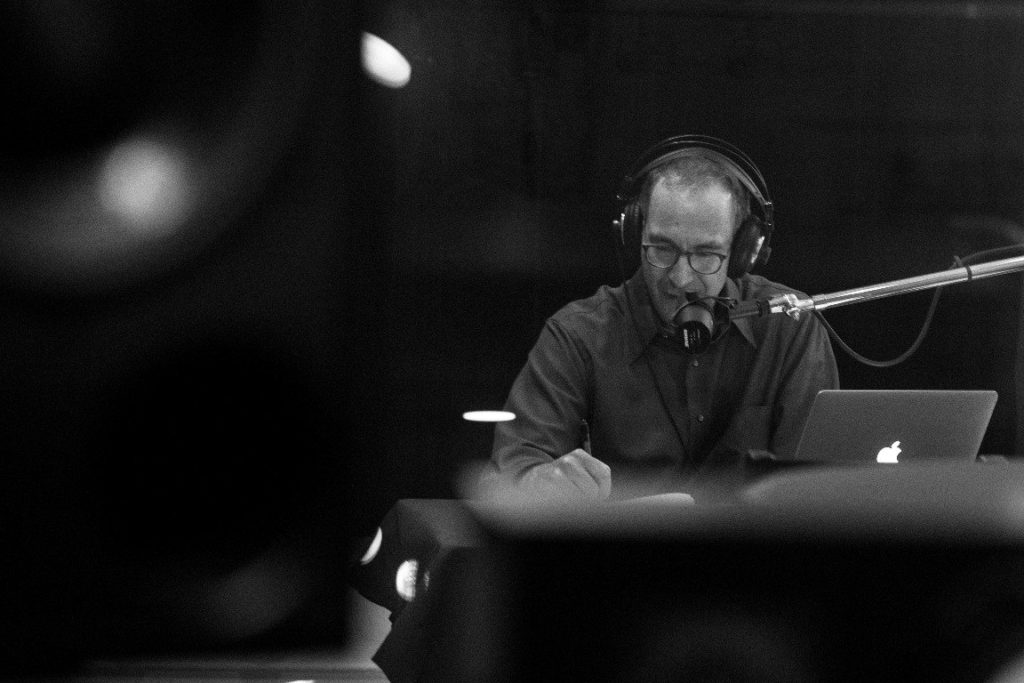Podcast
Finding the Perfect Career With Sokanu’s Spencer Thompson
On the latest episode of “The Bottom Line” podcast, Spencer Thompson explains how his own experience led him to found the career test site.

In the 1967 film The Graduate, 21-year-old Benjamin Braddock—played by Dustin Hoffman—is famously given a single piece of career advice by a friend of his parents: “Plastics.” Some four decades later, most of Spencer Thompson’s high school classmates were steered, in similarly narrow terms, into the one area that supposedly promised them a bright future.
“I started asking my friends what they were going to study in university . . . and they kept saying health sciences,” Thompson told me on the latest episode of my podcast, The Bottom Line. “I found that very odd because in my four years of going to school with these individuals I had never once heard health sciences come up. And so I started asking, ‘Why is that?’ And they said, ‘Oh, I went to the guidance counselor, and she told me that there is a lot of money in pharmaceutical sales . . . and so I should really go into that.’”
In the end, Thompson adds, “you had 50% of my class of 300 basically study health sciences at the same one or two places.”
For Thompson, who grew up on the Canadian side of Niagara Falls, the whole thing got him thinking: There must be a better method for people to choose the right career.
The result was Sokanu, a machine-learning-based career test site and database for more than 800 careers that Thompson founded in 2012, when he was 20 years old.
The career test, which consists of 310 questions, is designed to measure an extraordinarily large array of factors: your personality, must-haves on the job, can’t-stands on the job, a breakdown of hard skills, and much more. Despite its breadth, people complete the assessment in less than 20 minutes on average.
“We’ve tried to make it incredibly compelling to go through,” Thompson says, pointing to a Spotify-like feature that shuffles people’s results in real time depending on the answers they provide.
Whatever Sokanu is doing, it seems to be clicking with folks. More than 70% of those who start the test complete it right away, according to Thompson. In all, more than 2 million people have taken it to date. The basic test is free (with the company making most of its money by selling services to college and career guidance offices in U.S. public high schools).
Of those coming to the Sokanu site, about 60% are new to the job market; the other 40% have work experience and are contemplating a career change. Those in this latter group are especially important to Sokanu because they leave behind valuable information, including how much satisfaction they’ve found in a particular occupation. That way, when newcomers with similar traits express interest in going into the same field, it’s possible to see how good a fit it really is.
Compared with a traditional career test, says Thompson, Sokanu’s offering is “much more of an adaptive prediction engine.”
Not that everyone is apt to follow Sokanu’s counsel. Social pressures, Thompson notes, can be fierce.
Even if you told someone “that you had 100% confidence that they should be a florist . . . but that person grew up in Greenwich, Conn., and their parents work in hedge funds and they went to Yale, the chance they’re going to be a florist is sub-10%,” he says.
Driving Thompson is a strong belief that having “not just a job, but having a job that is . . . at least an 80th percentile fit for who you are” is crucial to people’s health and happiness—“to what makes humans human.”
Going forward, Thompson is planning to start a separate company devoted to a related area: job training. His focus will be on helping people land middle-skill positions, which generally require some education beyond high school but less than a four-year degree.
One area that he won’t be concentrating on, despite his own digital background, is high tech. “Not everybody can be a web developer. Not everybody can be a data scientist,” Thompson says. “It’s an absolute lie that most people in the middle of the country or the edge of the country that have been struggling, that have been suffering, that have been left behind can automatically just become a worker in this world” of technology.
You can listen to my entire interview with Thompson here, along with Bridget Huber reporting on the skills that today’s teens will need to succeed in the workplace of tomorrow, and Natalie Foster exploring how and why the private sector is starting to make real strides on paid parental leave.
The Bottom Line is a production of Capital & Main.

-

 Latest NewsFebruary 3, 2026
Latest NewsFebruary 3, 2026Amid the Violent Minnesota Raids, ICE Arrests Over 100 Refugees, Ships Many to Texas
-

 Featured VideoFebruary 4, 2026
Featured VideoFebruary 4, 2026Protesters Turn to Economic Disruption to Fight ICE
-

 The SlickFebruary 2, 2026
The SlickFebruary 2, 2026Colorado May Ask Big Oil to Leave Millions of Dollars in the Ground
-

 Column - State of InequalityFebruary 5, 2026
Column - State of InequalityFebruary 5, 2026Lawsuits Push Back on Trump’s Attack on Child Care
-

 Column - California UncoveredFebruary 6, 2026
Column - California UncoveredFebruary 6, 2026What It’s Like On the Front Line as Health Care Cuts Start to Hit
-

 The SlickFebruary 10, 2026
The SlickFebruary 10, 2026New Mexico Again Debates Greenhouse Gas Reductions as Snow Melts
-

 Latest NewsFebruary 12, 2026
Latest NewsFebruary 12, 2026Trump Administration ‘Wanted to Use Us as a Trophy,’ Says School Board Member Arrested Over Church Protest
-

 Latest NewsFebruary 10, 2026
Latest NewsFebruary 10, 2026Louisiana Bets Big on ‘Blue Ammonia.’ Communities Along Cancer Alley Brace for the Cost.

